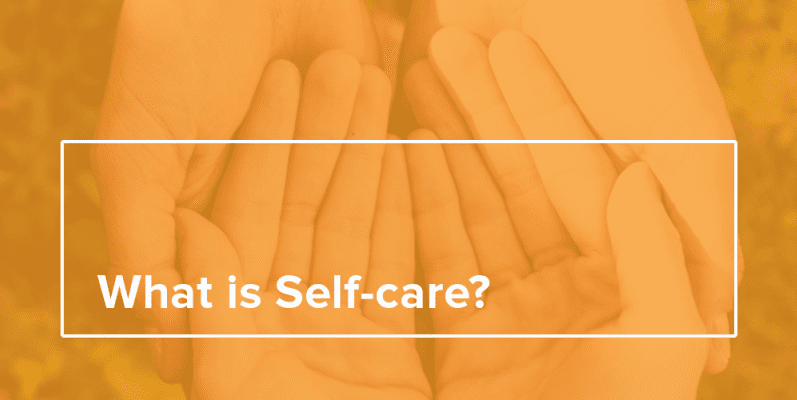Self-care. A term that has become more common in our conversations with our loved ones, our colleagues and on social media. But what does this actually mean?
Self-care is any intentional action that is used to support our mental, physical and emotional health. Essentially, it is anything that helps to fill up your own cup, charge your batteries, or replenish an empty gas tank. This may sound simple, but self-care practices are commonly overlooked in the rushed, busy nature of our daily lives. Whether you are a parent, caregiver or business owner, I am sure you can relate to the fact that you often prioritize your loved ones or your responsibilities first. With a mile-long to-do list, the first thing cut is your own self-care.
In our society, more focus is placed on glamorous or “healthy” forms of self-care, such as going to an expensive yoga class, getting away for a weekend trip or going to the spa. If you personally value these actions, they can most definitely be included in your self-care routine. That being said, it is important to identify that not all forms of self-care are glamorous, and you may be surprised to hear that they may not always feel easy. Self-care practices don’t just happen – they require constant reflection into how you are feeling and what you need at that point in your life, and work best when they are actively chosen. Let’s unpack this a little more by running through some examples of self-care, and how you can view it through a different lens.
- Self-care is taking the time to go for a walk, because you love the feeling of moving your body and getting fresh air. Self-care is also deciding to rest, because you identify that this is what your body needs.
- Self-care is putting the time and effort into preparing a nutritious and tasty meal, because you know you feel better when you do so. Self-care is also choosing to get take out or go for dinner, because you understand the importance of satisfaction and balance in your relationship with food.
- Self-care is planning an evening with your loved ones to enjoy their company. Self-care is also scheduling time alone, because you know this is essential in your effort to show up in all areas of your life.
- Self-care is choosing to include a regular meditation or yoga practice because you know it helps you to feel more relaxed and calmer. Self-care is also choosing to unwind in a different way, because you have tried this practice and it doesn’t serve you.
When it comes to self-care, there is no room for judgement. Only you can decide which actions help to fill up your cup, and which common self-care practices leave you feeling empty.
Action Plan:
Write out a list of all the ways that you are prioritizing self-care in your life right now. Keep in mind that self-care can mean taking your medication everyday or making a cup of tea at night, all the way to registering for a conference you are interested in or taking a trip to a place you have never been. After you have made a list of your small and big self-care practices, reflect on whether you feel everything on your list is filling up your cup. Is this something that you are including to please yourself? Is this something that you still enjoy doing or value?
If you are finding that your self-care list is rather short, consider adding practicing gratitude to your list: just think of one thing a day that you are grateful for and note how you feel.
Remember that self-care is important for everyone, and it is essential for what you choose to leave you feeling full, recharged and ready to be present in all aspects of your life.



